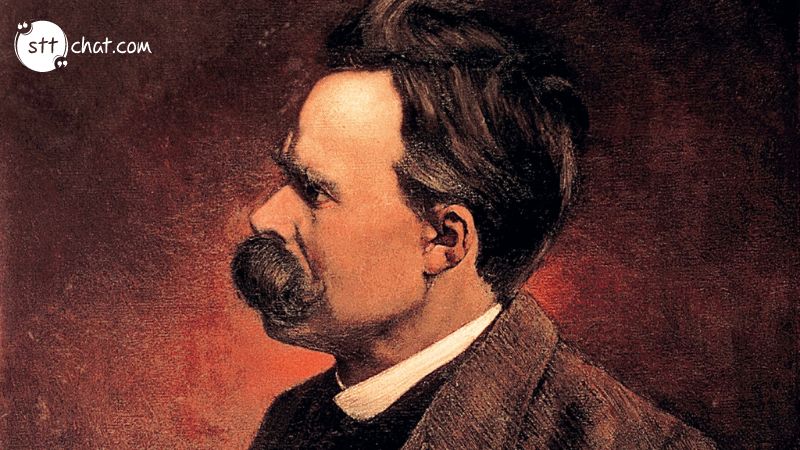The Dilemma of Action and Regret From Niccolò Machiavelli's Quotes
"It is better to act and repent than not to act and regret" speaks to the perennial human struggle between taking risks and playing it safe. Action, even when it leads to mistakes, brings learning and growth. Inaction, on the other hand, often breeds regret and missed opportunities. This philosophy encourages boldness and decisiveness, promoting a life lived without the shadows of "what if."The Interplay of Love and Fear
"Since love and fear can hardly exist together, if we must choose between them, it is far safer to be feared than loved." This statement explores the complex relationship between love and fear in leadership and personal relationships. While love fosters trust and cooperation, fear commands respect and obedience. The choice between them often depends on the desired outcomes and the nature of the relationship.The Nature of Revenge and Forgiveness
"Men should be either treated generously or destroyed because they take revenge for slight injuries; for heavy ones, they cannot. If an injury has to be done to a man, it should be so severe that his vengeance need not be feared." This harsh perspective on human nature suggests that partial measures in dealing with enemies or rivals are ineffective. It advocates for decisive action to prevent future retaliation, highlighting the brutal reality of conflict and power dynamics.
Appearance Versus Reality
"Men in general judge more from appearances than from reality. All men have eyes, but few have the gift of penetration." This insight reveals the superficial nature of human judgment. Most people form opinions based on what they see on the surface, lacking the ability to delve deeper into the true nature of things. It underscores the importance of critical thinking and the ability to see beyond appearances.The Dual Nature of Wisdom
"The lion cannot protect himself from traps, and the fox cannot defend himself from wolves; one must therefore be a fox to recognize traps and a lion to frighten wolves." This metaphor emphasizes the dual aspects of wisdom: cunning and strength. A wise person knows when to be cautious and when to be bold, balancing the two to navigate the complexities of life effectively.Making Decisions Based on Lesser Evils
"Wisdom consists of knowing how to distinguish the nature of trouble and in choosing the lesser evil." In a world where perfect solutions are rare, the ability to choose the lesser evil is a hallmark of wisdom. This perspective encourages pragmatic decision-making, focusing on minimizing harm and optimizing outcomes even in challenging situations.The Power of Ambition and Action
"Make no small plans for they have no power to stir the soul. Where the willingness is great, the difficulties cannot be great." Ambitious plans have the power to inspire and motivate. This quote encourages setting lofty goals and pursuing them with determination, suggesting that a strong will can overcome even the greatest challenges.
The Reality of Unforeseen Challenges
"It is a common fault of men not to reckon on storms and fair weather. Never was anything great achieved without danger." This statement highlights the unpredictability of life and the inevitability of challenges. Great achievements often come with significant risks, and being prepared for both good and bad times is essential for success.The Importance of Following Great Examples
"A prudent man should always follow in the path trodden by great men and imitate those who are most excellent so that if he does not attain to their greatness, at any rate, he will get some tinge of it." Learning from the examples of great individuals can guide one's actions and decisions. Even if one doesn't reach the same heights, emulating excellence can lead to significant personal and professional growth.The Measure of a Leader
"The first method for estimating the intelligence of a ruler is to look at the men he has around him." A leader's ability is often reflected in the quality of their advisors and associates. Surrounding oneself with competent and trustworthy people is a sign of good leadership and sound judgment.The Perils of Relying on Others
"One should never fall into the belief that you can find someone to pick you up." This quote underscores the importance of self-reliance. While support from others can be valuable, ultimately, individuals must take responsibility for their own success and resilience.The Impact of Victory and Defeat
"A battle that you win cancels any other bad action of yours in the same way by losing one all the good things worked by you before become vain." Success and failure have profound impacts on one's reputation and legacy. Winning can overshadow past mistakes, while losing can negate previous achievements. This perspective emphasizes the high stakes of critical endeavors.Embracing New Experiences
"Men intrinsically do not trust new things that they have not experienced themselves." Human nature tends to resist change and unfamiliar experiences. This quote encourages openness to new experiences and the willingness to step out of one's comfort zone.The Value of Ambition Over Sloth
"Make mistakes of ambition and not mistakes of sloth. Develop the strength to do bold things, not the strength to suffer." Ambition drives progress and innovation, while complacency leads to stagnation. This perspective advocates for proactive efforts and bold actions over passive endurance.Gaining Clarity with Time
"The more sand has escaped from The Hourglass of our life, the clearer we should see through it." As time passes, life's experiences provide clarity and wisdom. This quote suggests that age and experience lead to a deeper understanding of oneself and the world.The Power Dynamics of Love and Fear
"Men shrink less from offending one who inspires love than one who inspires fear." This statement explores the dynamics of power and influence. Fear often commands more immediate obedience than love, highlighting the complex interplay between these two emotions.Adapting to Changing Times
"Whosoever desires constant success must change his conduct with the times." Adaptability is crucial for sustained success. This quote emphasizes the importance of evolving with changing circumstances and being flexible in one's approach.The Dual Impulses Driving Human Behavior
"Men are driven by two principal impulses, either by love or by fear." Understanding these fundamental motivations can help in predicting and influencing human behavior. This insight is valuable in both personal and professional contexts.The Importance of Honesty and Feedback
"There is no other way to guard yourself against flattery than by making men understand that telling you the truth will not offend you." Encouraging honesty and constructive feedback is essential for personal and professional growth. This quote emphasizes the value of creating an environment where truth is respected and welcomed.The Role of Hard Work and Training
"Nature creates few men brave, industry and training make many." While natural talent is rare, dedication and hard work can develop skills and courage. This perspective highlights the importance of perseverance and continuous improvement.Building a Strong Foundation
"The best fortress which a prince can possess is the affection of his people." A leader's greatest strength lies in the support and loyalty of their followers. Building strong relationships and trust is more effective than relying solely on physical defenses.The Dual Nature of Relationships
"He who shuns women passes up the trouble but also the benefits. He who puts up with them gains the benefits but also the trouble. As the saying goes, there's no honey without bees." Relationships come with both challenges and rewards. This quote highlights the importance of balancing the two and appreciating the value that comes with commitment.Learning from History
"Everyone who wants to know what will happen ought to examine what has happened. Everything in this world in any epoch has its replicas in antiquity." Understanding history provides valuable lessons for the present and future. This quote emphasizes the cyclical nature of events and the importance of historical knowledge.The Necessity of Action
"Necessity is what impels men to take action, and once necessity is gone, only rot and decay are left." Necessity drives progress and innovation. Without it, stagnation and decline set in. This perspective underscores the importance of maintaining a sense of urgency and purpose.Recognizing One's Ignorance
"A sign of intelligence is an awareness of one's own ignorance." Acknowledging the limits of one's knowledge is a mark of true wisdom. This quote encourages humility and continuous learning.The Flaws of Human Nature
"Of mankind we may say in general they are fickle, hypocritical, and greedy for gain." This candid observation reflects the imperfections and complexities of human nature. Understanding these traits can help in navigating social interactions and managing expectations.The Element of Surprise
"There is nothing as likely to succeed as what the enemy believes you cannot attempt." The element of surprise is a powerful strategy. This quote emphasizes the advantage of unpredictability in achieving success.The Essence of Honor
"It is not titles that honor men but men that honor titles." True honor comes from one's actions and character, not from external accolades. This perspective highlights the importance of integrity and personal values.The Inevitability of Conflict
"There is no avoiding war; it can only be postponed to the advantage of your enemy." Conflict is often unavoidable, and delaying it can give an advantage to opponents. This quote underscores the importance of timely and decisive action.Building on Solid Ground
"In conclusion, the arms of others either fall from your back or they weigh you down or they bind you fast. He who builds on the people builds on the mud." Relying on external support can be precarious. Building strong, self-sufficient foundations is crucial for long-term stability and success.The Reality of Deception
"Men will always deceive you unless they are kept honest by constraint." Human nature inclines towards deception without accountability. This quote emphasizes the importance of checks and balances to ensure honesty.The Value of Truth
"Everyone around will envy you if you tell the truth, the truth which is profitable." Speaking the truth, especially when it is beneficial, can inspire respect and admiration. This perspective highlights the power of honesty in gaining trust and credibility.The Strength of Confidence
"It's far better to earn the confidence of the people than to rely on fortresses." Trust and confidence from followers are more valuable than physical defenses. This quote emphasizes the importance of building strong, positive relationships.The Art of Command
"He who wishes to be obeyed must know how to command." Effective leadership requires not only authority but also the ability to inspire and direct. This quote underscores the skills needed for successful leadership.The Danger of Illusions
"Men will not look at things as they really are but as they wish them to be, and are ruined." Ignoring reality in favor of illusions leads to downfall. This quote emphasizes the importance of facing facts and making decisions based on truth.The Power of Fear
"It is much safer to be feared than loved because love is perceived by the link of obligation which, owing to the baseness of men, is broken at every opportunity for their advantage. But fear preserves you by a dread of punishment which never fails." This statement highlights the reliability of fear over love in maintaining control and obedience. It underscores the complexities of human emotions and their impact on relationships and power dynamics.In conclusion, these insights offer a profound understanding of human nature, leadership, and the intricacies of social dynamics. Embracing these lessons can guide individuals in navigating life's challenges and achieving personal and professional success.






